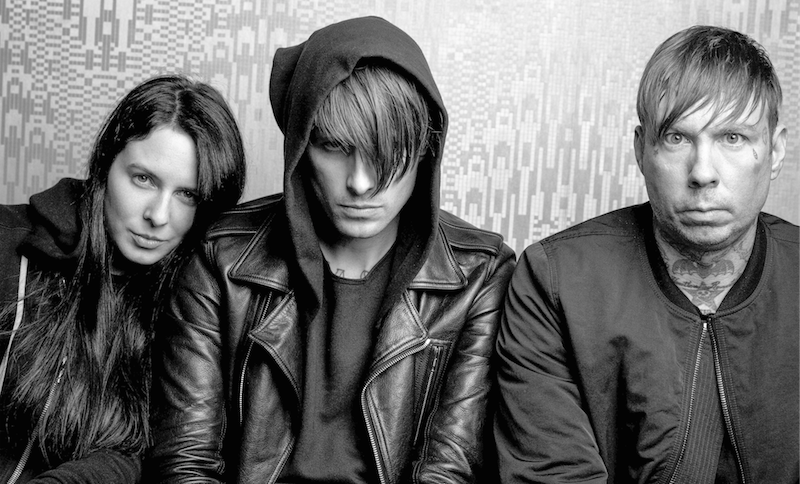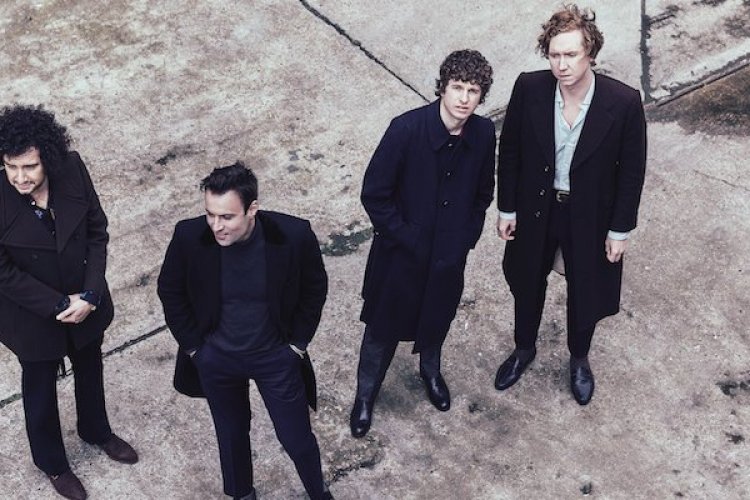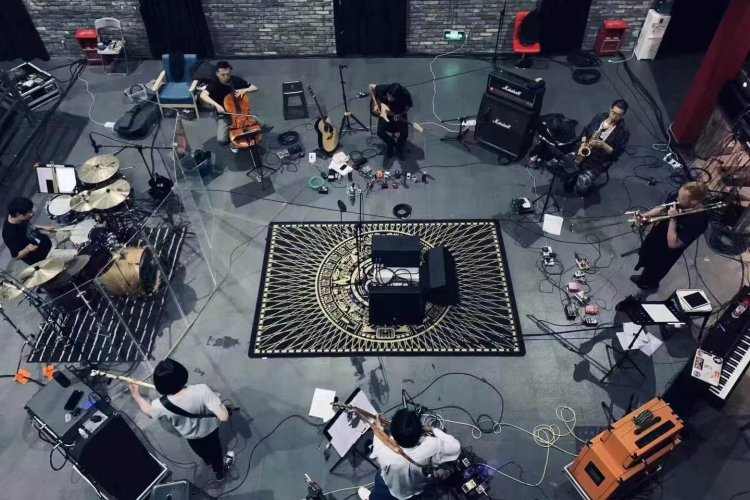More Than “Just a Bunch of Goths”; Q&A With Cold Cave Ahead of Their May 21 Wetware Gig
Clad entirely in black leather and denim, coated in tattoos, and maintaining intense eye contact throughout our interview, Wesley Eisold and Max G. Morton certainly made a striking first impression. But the Cold Cave performers also quickly came across as warm, friendly, and deeply thoughtful during the grilling, a juxtaposition akin to the brooding verses and anthemic choruses of their dark take on synth pop.
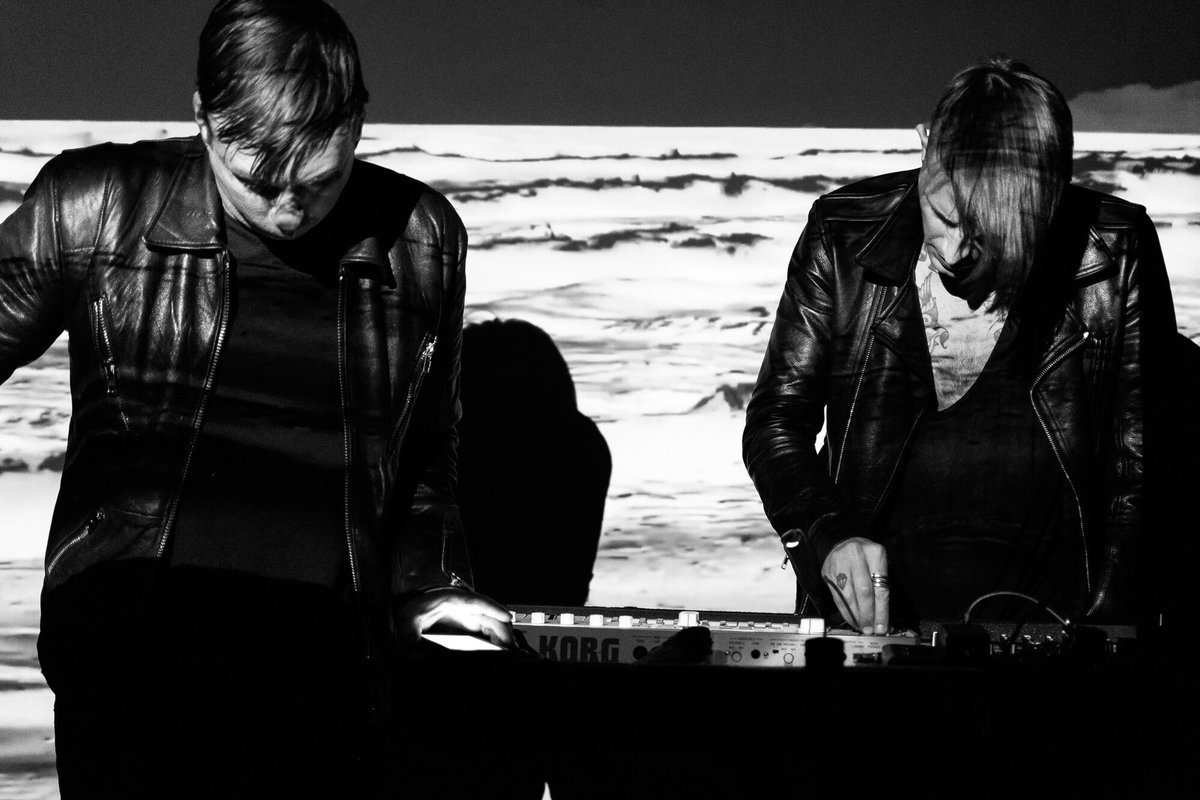
Eisold founded the group over a decade ago and has been its sole consistent member, as well as its frontman and songwriter. A who’s who of fellow edgy indie noise rockers passed through and contributed in the years since – Morton on keys for a short portion of their early days, before returning more recently as a permanent member; Sean Martin of Hatebreed in 2009; Caralee McElroy of Xiu Xiu from 2009-2010; Dominick Fernow of Prurient from 2009-2011; and Amy Lee from 2012 to today. Now Eisold, Morton, and Lee have settled into a groove and hope to further build on their 1980s imbued, Joy Division-indebted sound with a new album by year’s end. But before that they stopped by Beijing for a gig at Omni Space before their May 21 Wetware Festival set (for the full schedule, click here).
Below, Eisold and Morton – who have also collaborated on prose and publishing via Eisold’s Heartworm Press – tell us more about their influences, the band’s future, and why their fans shouldn’t just be dismissed as “just a bunch of goths.”
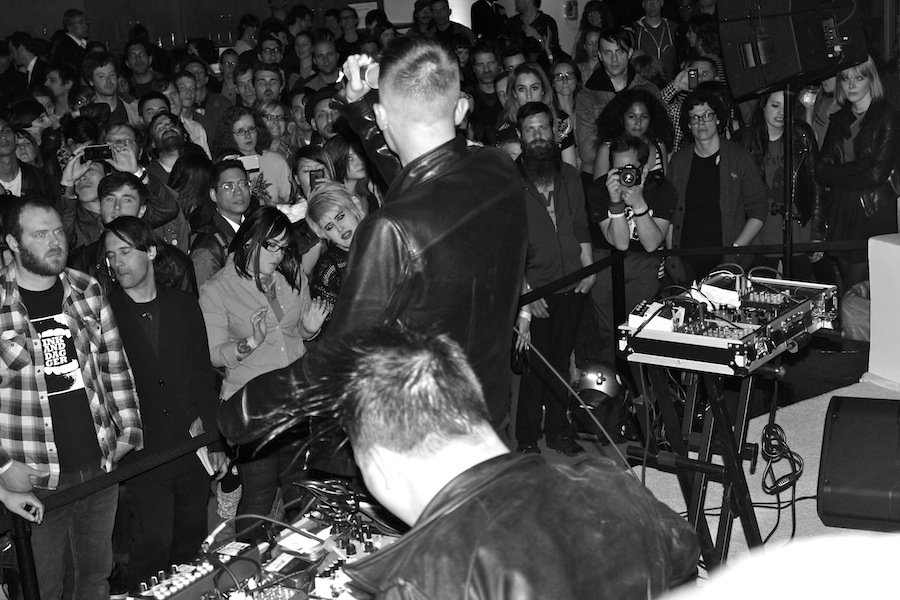
Wes, your lyrics are so poetic in Cold Cave, and you're also an author and publisher. So who are your biggest literary influences?
Wes Eisold: I like Richard Brautigan and a bunch of San Francisco 1950s writers. That’s where I’m coming from. But I also grew up on the Smiths. Being a child of the 80s, I tend to romanticize that era still.
Does that mean you get a lot of children of the 80s at your shows? Or, considering you founded Cold Cave only a decade ago, were most of your fans not even born in the 80s?
WE: We get a lot of people dressed in black. That’d be the easiest way to describe them [laughs]. But actually it’s really cool how we get all kinds of people.
In the past five years there have been a lot of fans of The Cure and Depeche Mode at our shows. Then there’s also people who grew up in punk and hardcore, and who are a little older now, coming out. We also attract lots of people in micro genres of underground and electronica. So it’s a cool mix. Someone might look into the crowd and go “Oh, it’s just a bunch of goths.” But it’s actually more complicated than that.

The people that have been involved in Cold Cave also seem to be a varied, complicated bunch. Max, can you tell us more about how you joined?
Max G. Morton: I played some of the first Cold Cave shows a decade ago, and then came back again a year ago.
WE: I’ve mostly based the people I’ve collaborated with around where I live at a given time. I’m based in LA now, and Max moved there recently.
What are the benefits and drawbacks of having such having so many members involved?
WE: I’m not sure if there are any benefits. You go through this trial of wondering if someone can help you understand your vision for a band, and often people can’t people do that. But that means, when it does happen, it’s way cooler and much more special.
So tell us a little more about the dynamic you both share.
WE: We met each other through my small publishing company. I had put out one of his first books, and we’ve been in touch since then, through writing and music and all sorts of stuff.
MM: It’s interesting because, coming in and out of a band, it’s music I’ve never stopped listening to. So it’s rewarding to get to come back and play songs you’ve listened to as a fan. And we’ve got connections through other bands, and through my writing.

After this tour wraps up, will you write music together?
WE: We’re trying to get some records done now. We’d love to release something before year’s end. It’s just been singles and EPs over the past few years, because we’ve been touring pretty vigorously.
So we’re hoping this is the last few shows we have for a while. And by a while I mean three or four months, which may not seem like a lot, but is quite a long time for a band that tours as much as ours. It’d be great to cram in a few records in that time.
MM: So that can be away on tour again for a few more years [laughs].
So you’re not really ones to stay idle.
WE: No, you can’t man. That’s how people die!
What are some of your hopes for the new record?
WE: It’s a little too early to discuss how it will sound like or anything. But it’ll be a pretty obvious extension of where the band has been, and what should come next. I know that sounds a bit vague, but we’re on the verge of answering those questions for ourselves.
Are there other people that you’re hoping to bring in, considering how varied your lineup has been in the past?
WE: No, not right now. Now it’s more about sitting down and getting this record perfect. Right now it’s about refining.
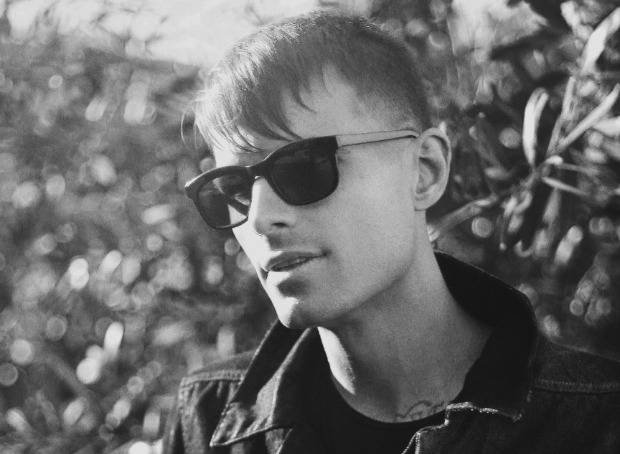
I read in The Fader that, before starting Cold Cave, you had to rely heavily on prior bandmates to write music and “after some time of singing over other people's music I grew tired and would quit." How has Cold Cave compared to that?
WE: Yeah, when I started Cold Cave I was recently out of a band. It never occurred to me to stop playing music. But it hadn’t yet occurred to me to start playing my own either. Luckily that timing coincided with great synthesizers and especially great computer programs coming out. I started exploring that world, with little music capability or knowledge, and was pretty pleased with what I found, and what I started making through accidents. So it’s kind of all just evolved from that moment, from wondering what you can do by yourself.
Did it take a lot of courage to that? It seems like such a big step.
WE: No, I don’t think so. I think it was more about freedom. It was really open. There was no way to fail. At that time I was just listening to a lot of noise, so I was going to be happy to make some shitty noise record. It felt like a happy accident I guess, which doesn’t require any courage.
Tell us more about one of those happy accidents.
WE: Probably the first real song I made was “The Trees Grew Emotions and Died.” I like that song a lot.
Part of it was just noise. I began with this lame chord progression over nothing. Then I put a drum machine underneath it, then played a melody over that, then cut and pasted some vocals over it. And I ended up really liking it, and heading out and walking around Philadelphia listening to it on my headphones. From there I sent it to some friends, and then I put it out as a 12-inch, and people liked it. All of this started from there.
Catch Cold Cave at the Wetware Festival's main stage on May 21 at 10.40pm. For the full schedule, click here.
More stories by this author here.
Email: kylemullin@thebeijinger.com
Twitter: @MulKyle
Photos: Punktastic, JV Photo and Video, Self Titled Mag, CTV Nation, BeardedCeph (Twitter)

